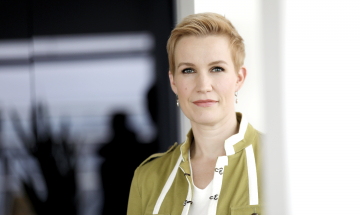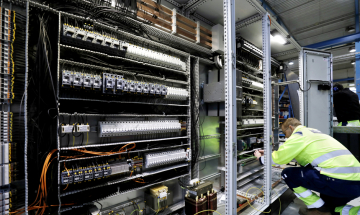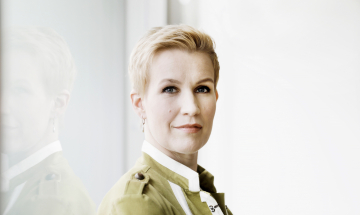Perspective
Market economy status of China
Position of the Federation of Finnish Technology Industries:
Due to China’s treaty of accession to the WTO in 2001, the European Union as well as other WTO countries must decide in December how trade relations with China will hereafter be handled. The matter relates to whether China will be granted a market economy status. The decision is important in terms of the handling of, for example, anti-dumping cases and the determination of anti-dumping duty rates.
The position of the Federation of Finnish Technology Industries is consistent with the “Yes, but” option of the Commission, i.e. granting China a market economy status while simultaneously strengthening the EU’s own anti-dumping tools.
It is essential that changes to the trade policy position of China and the anti-dumping regulations are made in a way that takes China’s WTO treaty into account in full detail. China is an important trading partner for Europe. It is an important customer and source of supply for Finnish as well as other European companies. Many companies have Chinese subsidiaries focused on manufacturing or marketing. The technology industry has approximately 40 manufacturing subsidiaries in China. Finnish companies employ a total of over 55,000 people there.
When deciding on the market economy status of China and the related trade measures, the reactions of both China and third countries regarding the decision must be considered. It is possible that China will make decisions restricting the operations of companies in the country if the EU does not grant it a market economy status. The opposite action by the EU may provoke a backlash in the countries that do not grant a market economy status to China.
Fair and equal terms of competition require the competitiveness of the European business sector, especially the manufacturing industry, to be secured. For this reason, it must be possible to deal effectively with all dumping that occurs. This requires that anti-dumping tools are developed in such a way that European manufacturing is treated as equal to imports, regardless of the origin of the imports. It should also be possible to handle dumping from China and elsewhere by means other than the standard methodology of the WTO.
China’s global trade operations treat sectors of the technology industry in different ways. Different sectors may require different trade protection mechanisms. Some companies, particularly in the finished product manufacturing industry, take advantage of China’s manufacturing capacity in their component and raw material procurement in order to maintain their competitiveness in the world market. Some companies suffer due to the wide-ranging manufacturing overcapacity generated in China. In Finland, the primary target of this has been the steel industry. In this competitive environment, it is extremely important that every country and continent is able to ensure free and equal competition, at least in its respective market, if necessary.
The Commission has sought for some time now to find an interpretation of and approach to the expiry of Article 15(a)(ii) of the WTO treaty. Due to the slow pace of EU legislation, the EU will have to resolve the matter before the United States and other G7 countries.
Energy-intensive industries account for more than 25% of global greenhouse gas emissions. Under the Paris climate agreement, all major industrialised nations, including China, have committed to reducing their CO2 emissions. Despite the various emissions trading schemes, all aim to limit global warming. The Federation of Finnish Technology Industries considers it reasonable to propose that the products sold in the European market be included in emissions trading schemes. The goal is to bring the pricing mechanisms of CO2 emissions used in different parts of the world closer to each other. Eventually, the mechanisms could be linked together. To combat deviations, a unified course of action approved by the WTO for the prevention of the dumping of carbon must be established. Should a product sold in the EU not include the full price of CO2 emissions, it could be considered dumping and handled in accordance with the anti-dumping regulations of the EU.
The Federation of Finnish Technology Industries proposes the implementation of the following practices and changes in legislation for the development of anti-dumping tools. The interests of the region’s producers, users, consumers and importers must be taken into account in the determination and application of the regulations:
Grandfathering (automatic renewal of existing anti-dumping decisions)
Cost of production and particular market situations (in particular market situations, the EU’s standard method will be departed from in favour of, for example, the cost of production method [USA])
Limiting the lesser duty rule for certain commodities (in the case of certain seriously affected sectors and products, the method of lesser duty would not necessarily be applied)
Amending the EU anti-subsidy legislation (strengthening the legislation related to state and other subsidies granted to companies. It would not be mandatory to use the domestic prices and costs reported by China in anti-dumping investigations.)
Speeding up the consultation process of member countries (The Federation of Finnish Technology Industries stresses that the EU needs to cut the duration of anti-dumping investigations. Good methods include registration and raising the injury margin.)
Further information:
Sanna Rauhansalo, Director
Tel. +358 50 340 6174
sanna.rauhansalo@teknologiateollisuus.fi
sanna.rauhansalo@teknologiateollisuus.fi
Matti Spolander, Advisor
Tel. +358 40 743 1998



